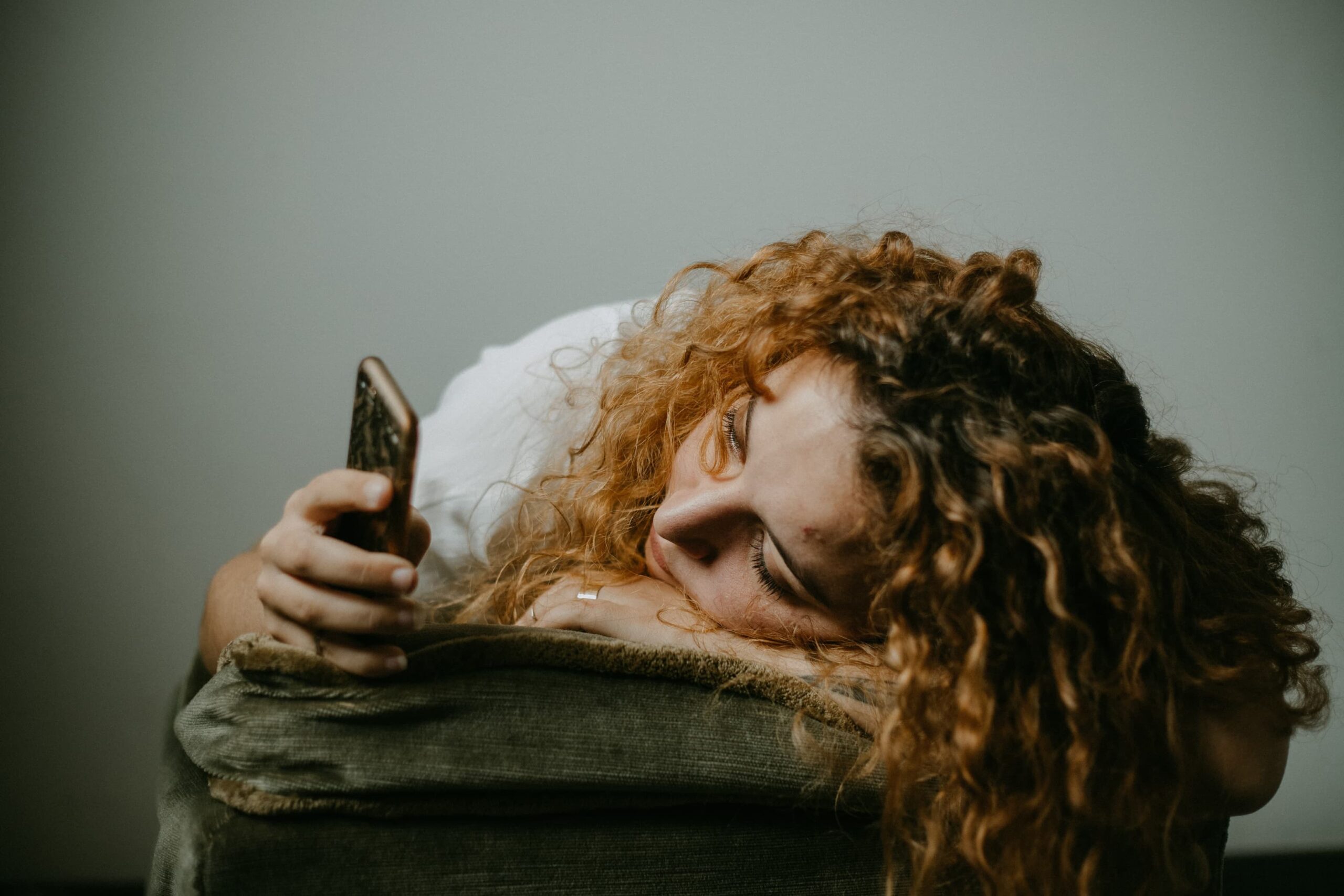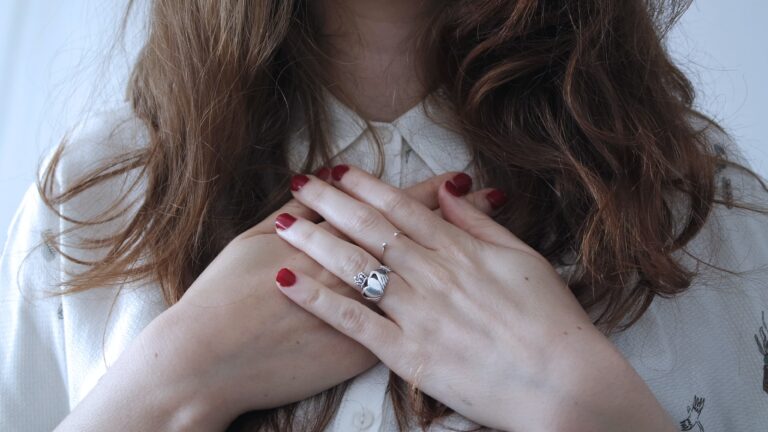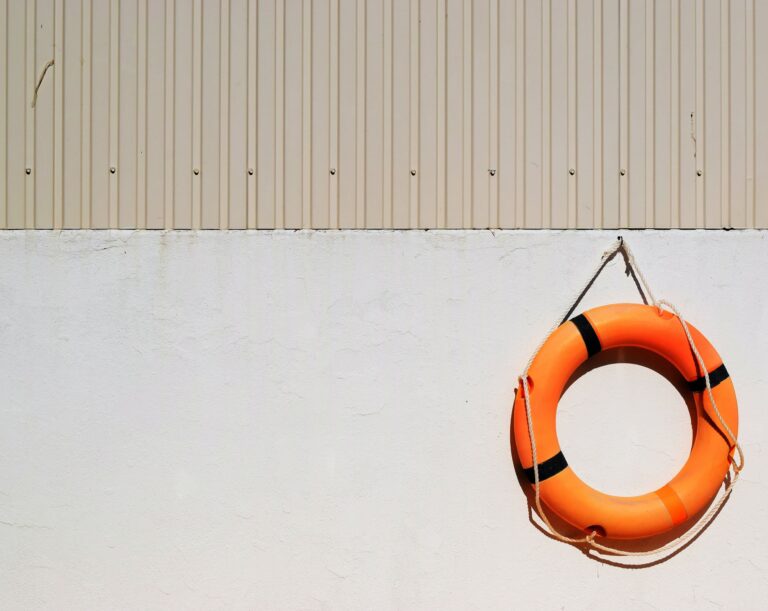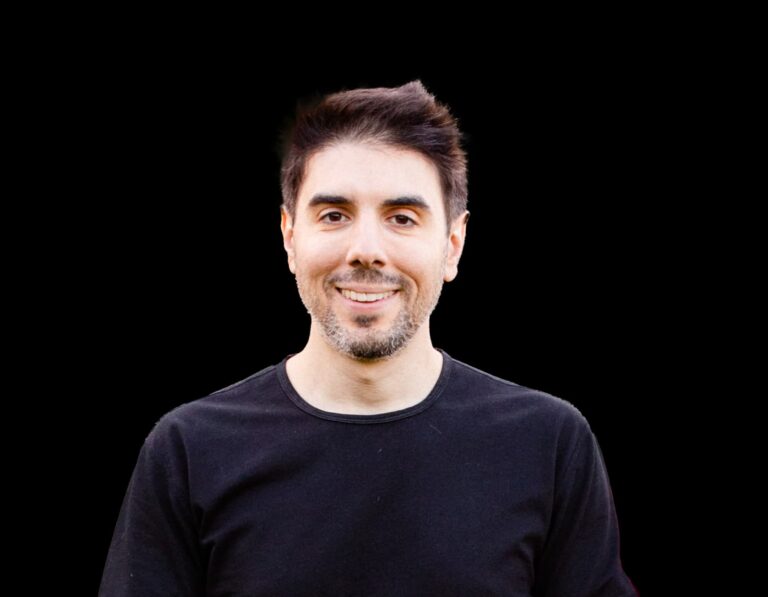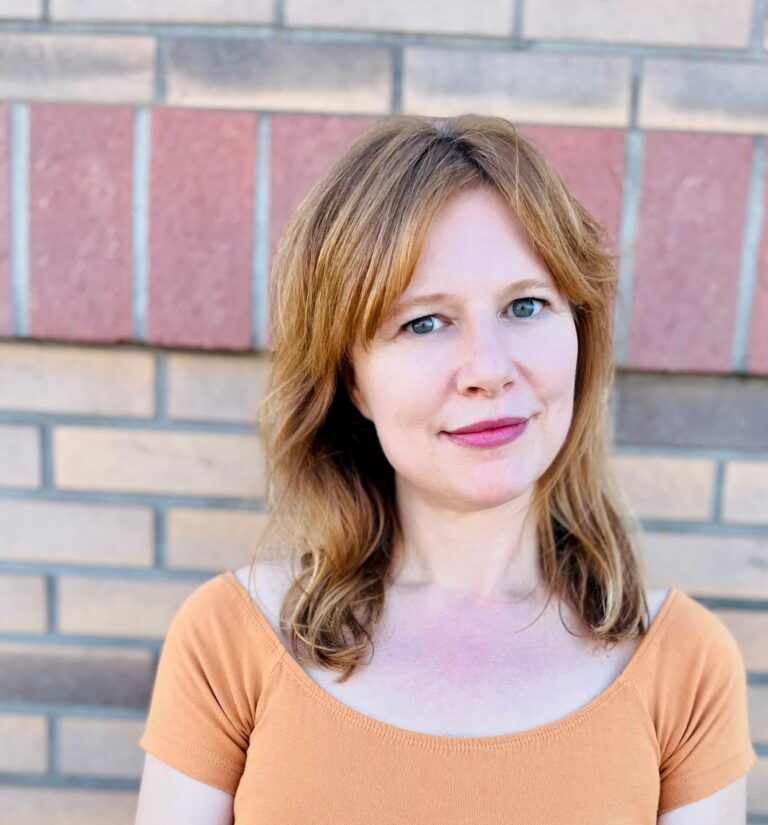How Grief Affects the Body and Mind
In this episode, I explore the profound impact of how grief affects the body and mind and discover strategies to cope with these challenges with special guest, Sabine Horner.
Sabine Horner is a widow, grief nutritionist, Ayurvedic health coach, and yoga therapist, who shares her deeply personal story of coping with the loss of her husband to leukemia. She discusses the emotional and physical challenges she faced during her husband’s illness, her transformation through Ayurvedic practices, and valuable insights into how grief affects our bodies, digestion, and sleep patterns.
Key topics in this episode:
- The impact of grief on the body
- Ayurvedic approach to healing
- Holistic coping strategies
Discover practical tips, dietary advice, and holistic approaches to navigate the complex terrain of grief, ultimately aiming for better emotional and physical health.
Listen to the Full Episode
Links + Resources From This Episode
- Anjum’s Eat Right for Your Body Type: The Super-Healthy Detox Diet Inspired by Ayurveda by Anjum Anand
- Breath: The New Science of a Lost Art by James Nestor
- When Things Fall Apart: Heart Advice for Difficult Times by Pema Chodron
- The Holiday Hope Summit
“Breathing is so powerful because when we can’t breathe properly, we also can’t clear out the rubbish in our brain. So, we keep thinking the same things, and we don’t get out of this negative loop.”
– Sabine Horner
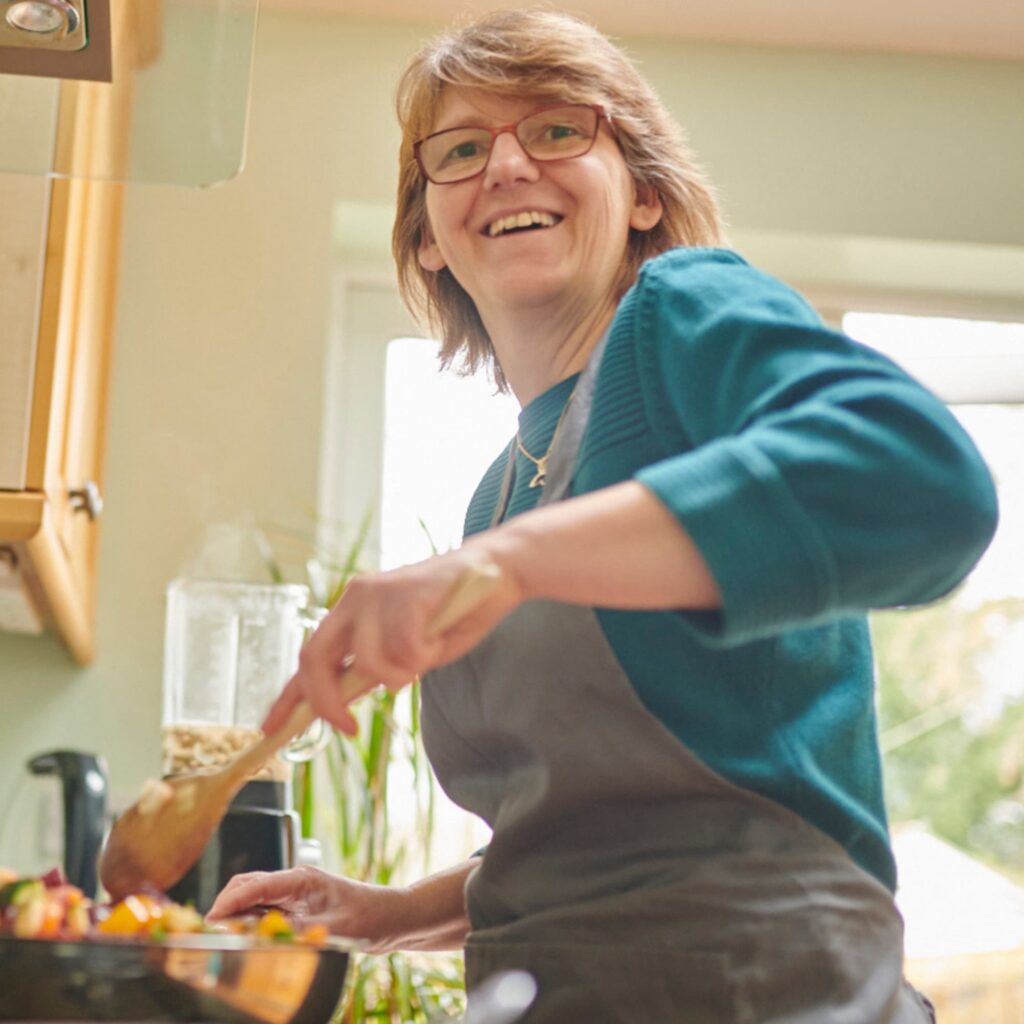
Episode Transcript
Jen: Welcome back to the podcast, everyone. This is an episode you don’t want to miss.
You may want to get out a pen and paper and take some notes from this one. Joining me today is the lovely Sabine Horner. She’s a widow, a grief nutritionist, an Ayurvedic health coach, and a yoga therapist. Her mission is to raise awareness of the impact that trauma and grief can have on the body and how the loss of a loved one can affect our physical as well as our mental health.
Sabine, I am thrilled to have you here.
Sabine: Thank you very much for talking to me again.
Jen: Such a great conversation, and it’s so helpful with everything that you teach. So, but before we jump into any of that, I want to just ask a little about your widow story, if you don’t mind.
If you can, tell us a little about what happened to your husband Kevin.
Coping with Loss and the Associated Trauma
Sabine: Kevin died of leukemia at home, and he died without me realizing that he was actually about to die. So, it was traumatic, as you can imagine. I mean, he had leukemia, but my brain was just blocking the concept of the possibility of him dying. I was just fighting for his life. There were obstacles after obstacle, and he was struggling with his muscles. You know? He couldn’t walk anymore. He was in a wheelchair, but my brain just wasn’t taking it on board.
I was just blocking the whole thing that he might die. So, when he died, I didn’t know what was happening in front of my very eye. That was very traumatizing. I’ve just recently really worked on that trauma, so I can talk about it without too many emotions now, but it was quite hard to talk about it, until recently.
Jen: I absolutely understand. When did he pass away? What year was that?
Sabine: 2017. So, it’s been a little over 6 years now.
Jen: How long did he fight leukemia?
Sabine: Fifteen months. He had three therapies, then he had nine months of no relapse. And then he had a sudden relapse, and then he had chemo again. That was in November, December, and then in April, he had a stem cell transplant that went completely wrong, and then he died because there was nothing they could do. The CMV virus was complicating everything. They just couldn’t get to grips with the virus. His new immune system didn’t know because he was still in this phase where the new immune system has to take over from the old one that had been ruined.
So yeah. He was just completely defenseless.
Jen: I’ve talked to other widows who have been through treatments and you’re fighting this and your thought in your head is we are gonna get through this. You’re not thinking that that outcome is even possible.
Sabine: You can’t go there. I had a friend who, in the two weeks leading up to his death, asked me, “what if you know?” And for a second, I tried to go there, and then I blocked it out again. I remember that exactly. I just couldn’t imagine life without him.
Jen: So, it’s a shock, and it is trauma because you haven’t even prepared for that. So, when he was diagnosed were you already living a healthy lifestyle, a health-conscious lifestyle, or were you making big changes after that diagnosis?
Sabine: Well, I mean, we were healthy as healthy goes. Right? I mean, there’s so many concepts about what healthy food and a healthy diet is. So, I try to avoid the word healthy. Now I just talk about nutrition instead of health. Okay. Oh, easy to digest. You know?
But I was struggling with weight issues, so I had already seen an Ayurvedic practitioner in the Netherlands where I used to live. I also had IBS, which didn’t exist back then. That label just came in later. I tried to do things, you know, like eat vegetables, but I was also eating pizza once in a while. I couldn’t stay away from gluten, which I knew I couldn’t digest properly. I had some things which caused problems. I never understood why my Ayurvedic practitioner was always going on about digestion. Now I understand it.
Back then, I just like I should be able to digest like everybody else. So, when Kevin was diagnosed, I remembered a book called Eat Right for Your Body Type by Anjum Anand. She’s quite well known in the UK. And I got it out, and it actually described his symptoms.
You know, his blood cancer. It said when the fire element is in your body, a pizza is out of balance, you can get blood issues. And it described it so wonderfully. So, his anger outburst, you know, a typical sign of too much heat in the body and difficulty sleeping and things like that. And I thought, we have to go there. Ayurveda has the answer. Ayurveda describes the root cause of the problem and now we have to go there. But we didn’t at first because his family interfered.
They actually sort of slapped me on my wrist, not literally, but figuratively. And they just wanted him to go on eating the way he had eaten before, which has actually caused leukemia or this lifestyle and diet and sleep and everything and stress. Stress was a biggie. He also lost his first wife, so that was also stressful emotions from the first loss. You know? Big trigger. So that’s why I’m so passionate about helping other bereaved partners, you know, because stress does a lot to our body, and we’re so unaware. Nobody tells us, you know, that we are actually emotionally stressed. I didn’t know.
I only found out by accident because after Kevin was diagnosed with leukemia, we changed our diet. And led an Ayurvedic lifestyle. It’s not just a diet. It’s also like trying to live with those rhythms of nature like going to bed by 10:00 pm, getting up at 6:00 am, eating three meals a day and the main meal at lunchtime when our digestion is at its best. It’s all these things, you know, with nature instead of working against it. When you’ve got leukemia, you haven’t got the energy to produce mature white blood cells. So that’s what our Ayurvedic practitioner says. We need to make sure his digestion is working well because 60% of the energy we get from the food. It goes back to digesting the next meal. So 60% is a lot, and then there’s only 40% left making mature blood cells.
And so, we just tried that, but we didn’t go into meditation and yoga. And I think when you have leukemia, you really have to pull out all the stops. Not just for nutrition, but then you also have other things. And when we did, his red blood cells were recovering. Just before a stem cell transplant, his platelets were recovering. They were in the normal range again. It was just that his white blood cells were still lagging. By that time, we used acupuncture, Ayurvedic massage, Ayurvedic nutrition, Reiki treatments, and kundalini yoga.
The Physical and Emotional Impact on Health – How Grief Affects the Body and Mind
Jen: What else does grief do to our bodies physically? I mean, there’s stress, like you mentioned, digestion. We end up with digestive problems too. But what else?
Sabine: Stress causes a lot of things in our body. It affects every single system of our body. And what it affects most is our breathing. First and foremost is our breathing.
And when our breathing changes and we don’t breathe deep into our tummy, then we are constantly in fight and flight mode when we breathe up from the chest because that’s where the fight and flight the receptors are. And deep in the belly are the ones that calm you down. Okay. So that’s why deep breathing is so important. I mean, breathing is so powerful. I’m just doing another course and the guy goes on about breathing, gives us breathing techniques to do, you know, to free us of our emotional rubbish as well because when we can’t breathe properly, we also can’t clear out the rubbish in our brain. So, we keep thinking the same things, and we don’t get out of this loop.
So breathing is massively affected which then affects our digestion because if we are in flight and flight mode, we can’t digest our food. It’s not possible. So, then we get digestive issues. We also get malabsorption of nutrients. Only the malabsorption of nutrients will open a wide field of imbalances. Magnesium, iron affecting the thyroid. Selenium, again, affected the thyroid. The thyroid needs about 20 different nutrients.
And I see in lots of grieving people that they have poor thyroid function. Which is here. And then you can also imagine, this gland here when we’re grieving, this constricts when we’re crying. And also, the vagus nerve goes through there, and the vagus nerve puts us into rest and digest mode. So that’s why people have difficulty swallowing.
So we also under-eat or over-eat. We have many issues. And also, our gut microbes are stressed when we are stressed. So, we’ve got trillions of gut microbes that live in symbiosis with us, our friends, you know, if the good ones are thriving. Then the neurotransmitter imbalances, serotonin, and dopamine, which are also made by our gut bacteria, not in the brain.
They’re released in the brain but produced in the gut. And there’s so many misconceptions about serotonin. The lack of serotonin and dopamine. It’s the sugar cravings and then we’re getting into this reward cycle that we need some rewards, you know, like, to get some satisfaction, some joy out of life so we get to drink more coffee or drink more alcohol or binge watch Netflix or whatever. You know?
Let’s just get some joy back in the heart, of course. It also affects massively every sick neuro system in the body.
Jen: Every part of our body is affected. Everything that you said, from the neurotransmitters to gut health, to stress. How do we even begin to tackle all of these things? Where do we start?
I like the idea of starting with breathing because I felt so much anxiety. It was relentless anxiety every day. Every second of every waking moment, it was anxiety for me. And I know I felt like I did not take a deep breath for months. It was panic mode all the time.
So, I like the idea of that being just a first thought. Just stop even if it’s several times a day and just make yourself, take a break, and just get some deep breaths in.
Sabine: It’s the best thing. It is the best thing, you know, because breathing reduces stress in the body. And there’s such a good book about nose breathing, why nose breathing is so important. So, it’s not just deep breathing, but also you use your nose to breathe in and out. And that’s to clear out your brain of rubbish again. But this book, Breath by James Nestor, is wonderful. It’s very clear, and he documented how blocking off his nose and then blocking off his mouth and the difference it made to his health. Wow. Within days.
Jen: Okay. Breath by James Nestor. We’ll have to put a link to that in the show notes too.
Sabine: Because people, you know, when I tell them to breathe deeply, they don’t do it because it sounds so simple, doesn’t it? But if you do it several times a day, whenever you think about it, whenever you cook or you drive, you just breathe into your belly while you’re driving. I do that nowadays. I mean, even just driving again.
Jen: Even just to set reminders. You know? Set an alarm on your phone as a reminder if you have to. Yeah. Take a break and do it.
Sabine: But I can also understand, you know, the feeling of not being able to breathe properly because I remember this heavy weight on my chest. So, it’s really difficult at first to breathe deep into your belly. You know? But the more you breathe into your belly, the more it’s going to, you know, relax the muscles because they’re all tense. They’re just like all the muscles in the body that are trying to keep us standing.
Jen: Start with that one. What are some super simple tips that you can give as far as diet goes, especially, like, in those first couple of months where you’re still really traumatized? You’re not thinking. You’re in that phase of not even thinking about eating and making yourself a priority. What kind of things can we turn to for simple nutritionist things?
Sabine: So, first, it should all be warm, or you should have something with a cold meal that’s warm. Always combine it like a salad with something warm if you are having a salad. But salad is difficult to digest. It’s raw. It has to be cooked by our stomach. So, if we eat something warm like a soup, it’s already cooked. It’s already blended. Our stomach doesn’t have to do so much, trying to break the food down. It’s less energy. It’s easier to digest and doesn’t cause any digestive issues.
If we eat a sandwich with ham and cheese, which is a terrible food combination in Ayurveda, it’s so difficult to digest the cheese, the processed food, and then the ham and then the bread. There’s three difficult to digest foods in one. So, on the scale of easy to digest and difficult to digest, they always say sandwiches are at the very end of difficult to digest. And I know that a lot of people get sandwiches by caring family members and neighbors. So, if you can’t avoid it, just eat it with something warm like soup. Combine it. It’s always better than just eating the sandwich cold on its own. And make sure somebody helps you with getting the groceries in because if you haven’t got the vegetables or the lentils in, you can’t cook. So, whenever you go out and you know that there’s nothing home, make sure you get some groceries in. So, I do that now. Constant filling up my fridge with fresh vegetables whenever I go out or buy lemons, you know, so that when I’m home, I’m not likely to go out again. Nobody wants to go out again, especially amid grief.
So, make sure that when you go out, you do some shopping. And there’s this Tonglen Practice because I know that shopping can be really triggering. And I have a video about these practices that helps us manage these waves publicly.
Jen: How can we do that?
Sabine: On the on the inhale, you’re just, like, breathing all the grief in the world, not just your own. All the sadness in the world, all the grief. And on the exhale, you just breathe out relief to everybody who’s grieving. Not just you. You’re also breathing it out to help other people find relief. It’s like cultivating compassion with but also with yourself. And it helps.
I’ve done it on planes, on buses, in supermarket stores. It helps because you’re allowed to breathe in all these emotions and then let go of them. And that’s what we need to do. We need to feel emotions and then move them. Yeah. And the best way is to move them out. You know? Not have them reset in the body. I like that one because it’s simple.
And it’s again from a book by a Buddhist monk called When Things Fall Apart. That’s where she describes this very ancient Buddhist method. And, again, you can see how important breathing is to move our emotions.
And then get a slow cooker. Just chuck all the ingredients into a slow cooker and just switch on the button. There you are. You’ve got something warm.
When the sun is at its peak, our digestion follows the sun. So, in the evening, when most people have the main meal, our digestion is actually very poor. Bread and red meat are very difficult to digest. And then our body doesn’t do well during the night because it’s still trying to process the food that’s not being digested.
So, make lunch the main meal.
Jen: I like the simplicity of it. I like to keep it simple because I think that and a lot of widows that I’ve talked to, they just, like you said, they go grab a sandwich. They go grab the bowl of cereal and eat that for dinner.
Sabine: If you can, make it a warm meal, like maybe oatmeal or do a warm soup, very basic. Still, it doesn’t require a lot of time and energy and you’ll really see the benefits.
You can eat cereal, but first, make sure there’s no sugar in it. All these sugars, even alternative sugars they like to hide, so have it with some warm almond milk. Not with dairy because dairy, again, can be difficult to digest for some people. And it can also make us, you know, like, addicted to dairy because there’s sugar in dairy. This lactose is a sugar.
So almond milk is good because it’s rich in magnesium. And we get depleted in magnesium when we’re stressed.
Jen: So, you mentioned being depleted in vitamins. But if we can’t get those vitamins from our diet or we’re just not doing it because we don’t have the energy to focus on that, the other alternative is to take vitamins in other ways, just a vitamin, right, or a powder supplement? Like, can you give some recommendations for that?
Sabine: We all have to supplement. So magnesium, you know, if you of restless legs or heart palpitations. When you can’t sleep, you can’t relax your muscles, that sort of thing, then magnesium is always one of the culprits. Vitamin D, of course, because we don’t get Vitamin D through food. There’s a chance that we won’t be getting the right dose and especially in the winter.
Even though the sun may be shining like now, I’m not going to produce any Vitamin D just going into the sun right now because his sun is at the wrong angle. So, supplementing with Vitamin D is vital.
You can supplement with a multivitamin, Vitamin D always, and magnesium. I would say also always talk to the doctor because magnesium lowers your blood pressure naturally. I know that a lot of grieving people are put on blood pressure medication because our blood pressure goes up. So try magnesium pills before you go on blood pressure medication if it’s not through the roof. Improving our digestion will improve the absorption of vitamins as well. But, of course, there’s this period of maybe months where we are digesting not so well.
Managing Sleep Issues and Grief
Jen: My other question is about sleeping and the problems that we have with sleep. How can we address that?
Sabine: So first of all, magnesium helps again. And then it’s also important to have our coffee intake, not drink any coffee after 3:00 in the afternoon. If possible, keep it to one cup of coffee because coffee has a long half-life, or whatever it’s called. We’re all different. We’re all responding differently to coffee, and some people are getting overanxious by drinking coffee. And they don’t even realize it because we’re already stressed, so we don’t realize that coffee is doing this.
Coffee is really not to be recommended for anybody with anxiety issues. So daily routine is important. Going to bed regularly at 10:00 pm to give our brain the chance to get rid of all the rubbish. Don’t eat a heavy dinner because you might wake up in the middle of the night.
Alcohol had the tendency to wake me up at 4:00 o’clock. Gave me some hot flashes because this grief pushed me into menopause. So there’s a lot of factors that can make us not sleep well, and Vitamin D is also linked to insomnia. So, again, get enough Vitamin D. Stay away from coffee. Get some coffee alternative in the afternoon.
And then breathing again.
We always come back to breathing. Like, the humming breath can be very beneficial. You know, like, closing off your fingers and then just on a long exhale. Yeah. That also helps with anxiety. And it just calms the nervous system again. It’s like deep breathing, you know, calming your mind, having a gratitude sort of ritual before going to bed, emptying the rubbish bin of your mind, the subconscious mind.
Go through your day and see what you can be grateful for, the little things. Gratitude, I know it’s helped me as well. What helped me in the first few months is meditation for the negative mind, and I’m going to upload a video about that, and have the instructions on how to do it the next few days. So, it’s very simple, which is like, we inhale all the negative thoughts, emotions, feelings, and then we exhale them again.
Jen: Which usually is worse at night right before you’re trying to go to sleep.
Sabine: Yes. I know there’s a psychological component to it, but just make your bedroom really cozy so that you look forward to going to bed. Don’t stall and stay on social media. And I have done that myself, so I know what I’m talking about. Yeah. Really, don’t do it because sleep is so important.
If you go to bed by 10:00 and you wake up by 3:00, that’s fine. You’ve had 5 hours of sleep. Have a cold shower that will wake you up. You know? Not a cold shower from head to toe, like the Wim Hof method. Just like a little on your legs, a little on the face to wake you up. And that really kept me going when I only got three or four hours of sleep. I was fully functioning the next day. Don’t be scared of only getting a few hours of sleep. Have these cold ablations in your face, and you will be fine.
Get up early. Get go to bed early. And your body will get used to this even if you are a night owl because night owls don’t exist. It’s just like us, completely out of sync with nature. And I know this again from my personal experience because I thought that was a nice plan. When my husband had leukemia, we went to bed by 10:00 pm, and we got up by 6:00 am to do our yoga in the morning, and I had no problem whatsoever with my husband. That was the greatest time of my life because I got so much out of my day by getting up early, doing the yoga first and going to bed by 10:00. It was great.
And I want to really feel that great feeling again. You know? Really get things done first thing in the morning when nobody’s awake. Yeah. Do your self-care in the morning.
Wrap Up
Jen: There’s so much to talk about. And I know, because we are so excited to have you as a speaker at the Holiday Hope Summit, and that is coming up soon. And Sabine’s presentation is called Navigating Emotional Hunger During the Holidays. We are so excited that you are gonna be speaking.
You can learn so much more from her, you guys. It’s incredible, the knowledge that Sabine is gonna give us.
Sabine: Thank you so much for inviting me to be a speaker.
Jen: Please, can you tell everyone where we can find you and get more information on your services and what you do, your website, Instagram, and all of that?
Sabine: Okay. So my website is now finally up and running. Not completely, but you can subscribe to my newsletter. You can find what I offer, like a 1:1 support program, but also, there’s a webinar coming up on December 9th, about sticking to a daily meal routine, so I’m going into that more in the presentation.
I also offer grief yoga classes because breathing is so important, and meditation is not what people think it’s all about, and also yoga is not what people think it’s all about. It’s really about stillness. It’s not about being able to sit still for five or ten minutes with no thoughts coming, because that’s not possible. You know? But don’t give up on meditation because it’s still your mind. It’s part of the whole thing is the practice is to just observe your thoughts and see them and let go with them.
Jen: So what is your website?
Sabine: It’s sabinhorner.com.
Jen: We’re going to put that link in the show notes too.
Well, thank you so much, and I know that there’s so much that we can talk about. This is a topic that is so vitally important, and we could talk about this for days, which, everyone go and check out the Sabine’s website because there’s so much to learn and so much to know and things that we can implement, easy things that we can implement that can help us with stress and sleep and all the things that you are dealing with right now with grief.
We know we’ve been there, and Sabine can help. So go and check her out.
Thank you so much, Sabine, for joining us today.
Sabine: It’s always a pleasure.

